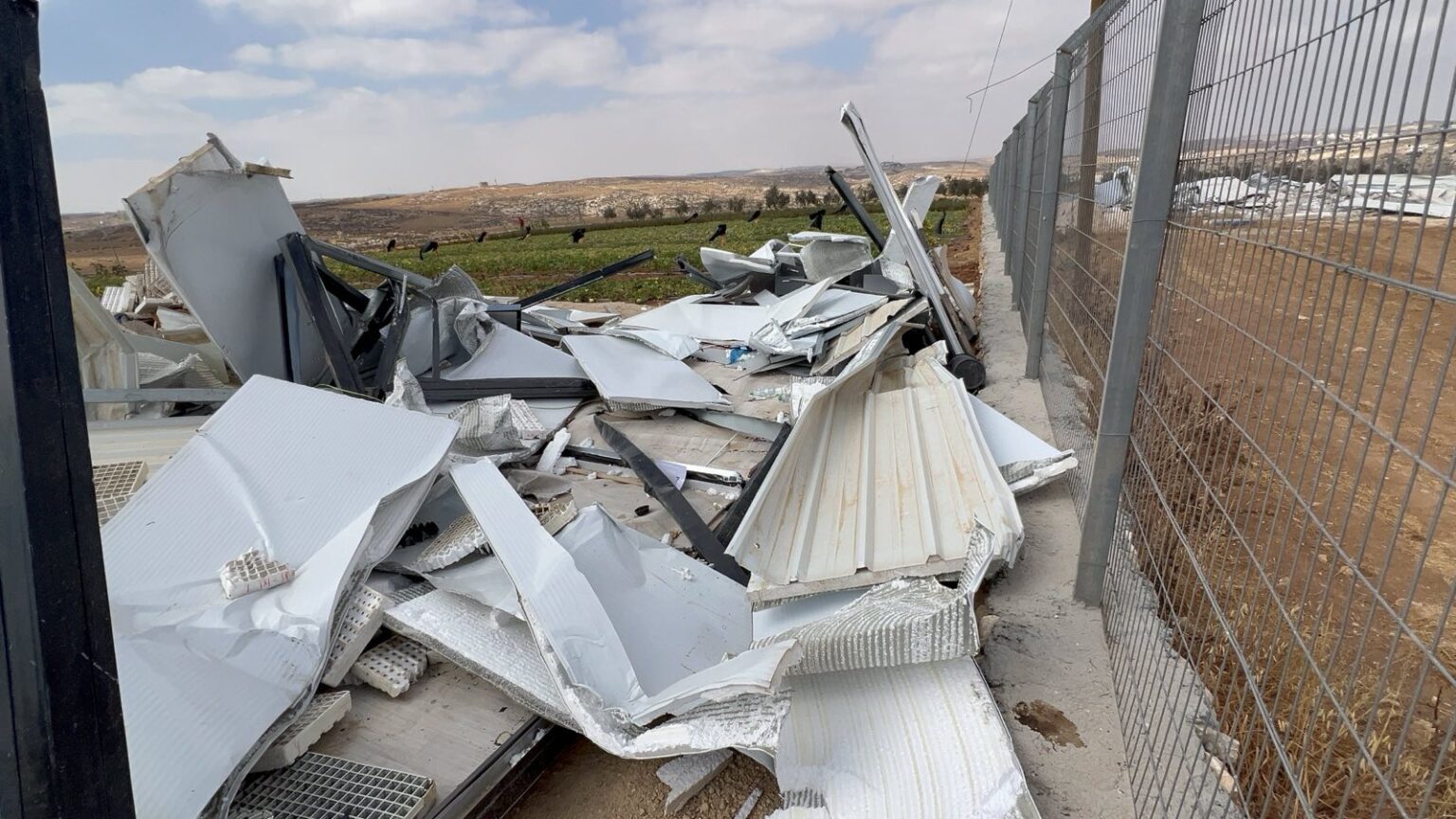Palestine’s only national seed bank was bulldozed on 31st July 2025 by Israeli military forces in a devastating continuation of the engineered famine.
Seeds have been grown, saved and shared for millennia. They are a gift from the past to the future, passing on cultural histories that are deeply rooted in the land. For over two decades, the Union of Agricultural Work Committees (UAWC)’s Local Seed Bank in Hebron has preserved more than 50 varieties of indigenous plant species that have formed the basis of Palestinian food sovereignty. Using bulldozers and heavy machinery, the Israeli military destroyed the Seed Multiplication Unit, including irrigation networks, monitoring systems, and essential equipment for reproducing heirloom seeds: a crucial thread for Palestinians, from their ancestry to future generations of all species. This act of agricultural violence severs Palestinians’ roots in the soil: ripping up not only their food but also their identity.
“Seeds are not just biological material; they are a vital source of real wealth for communities and the foundation of food systems that sustain independence and sovereignty. The Israeli Occupation Forces are systematically targeting every pillar that upholds Palestinian heritage, resilience, and rootedness in the land.” – UAWC
Following the attack, more than an acre containing fifteen key traditional summer crops, including tomato, courgette, fakous, okra, and sunflower, are now vulnerable to significant losses, compromising this season’s seed harvest and the replenishment of the seed bank for future years. In 2023 and 2024, unprecedented droughts, which led to seed production failures in many regions, emphasised just how crucial the Local Seed Bank is for local farmers, who rely on crop diversity for climate resilience.
This is not an isolated event. At the end of July 2025, the UN found that only 1.5% of farmland in Gaza is still workable or accessible because of the ongoing genocide and ecocide. This is down from 4% in April 2025, a heinous act of injustice against future generations, not only of humans but of olive trees, of goats, of crested larks, and all members of the Earth community in these lands.
In October 2024, the UAWC made history by submitting 23 Palestinian seed varieties to the Svalbard Global Seed Vault, a recognition of the value of Palestinian agricultural heritage on an international scale. The destruction of the Seed Multiplication Unit is therefore not only an attack on Palestinians but an assault on the global diversity – of both culture and nature – that is key to withstanding the polycrisis of our time. The rich diversity of our common human heritage is a vital legacy to protect for generations to come.
Along with La Via Campesina, Alliance for Food Sovereignty in Africa, Experimental Farm Network, Friends of the Earth, Exeter Seed Bank and others, The Gaia Foundation stands in solidarity with the UAWC. For almost four decades Gaia has accompanied Earth’s best custodians, restoring biocultural diversity by remembering our deep-rooted relationship with each other as members of a living planet. We are inspired by those in Palestine and beyond who are working for this mutually enhancing justice: continuing, courageously, to plant the seeds that hold our stories of origin and our future.
What you can do:
Exeter Seed Bank, which is twinned with the UAWC’s Local Seed Bank through a Twinning Project organised by the Landworkers’ Alliance, is organising a collection of donations to be sent to UAWC to support the restoration of, and to help protect, the remaining seed sources.

